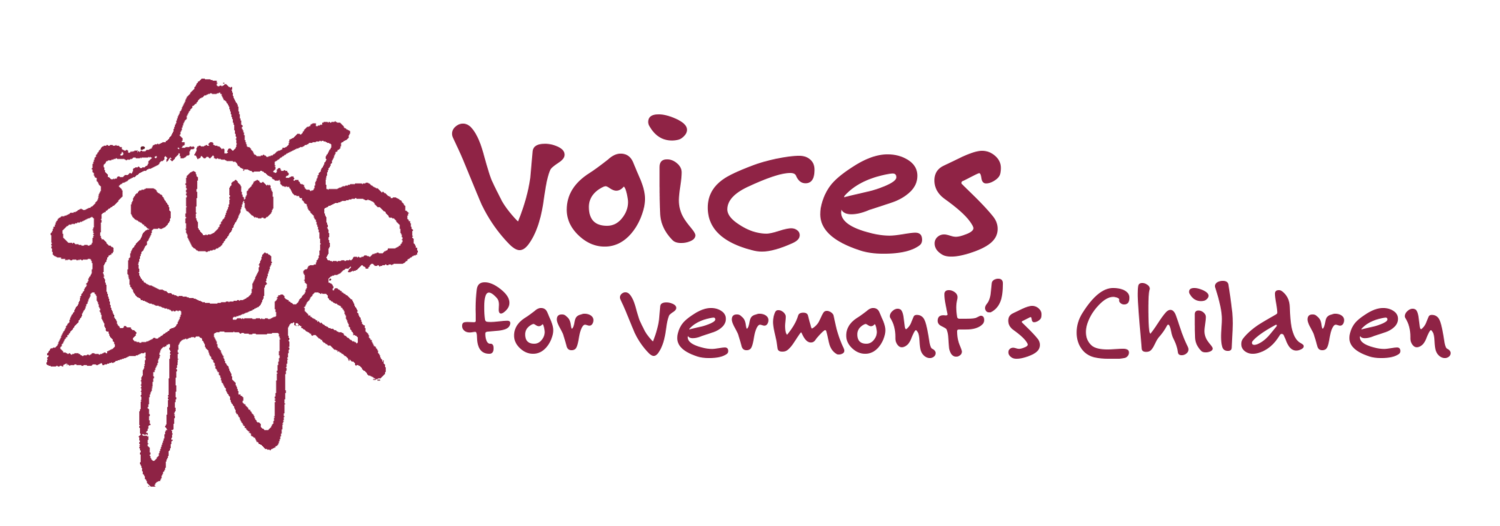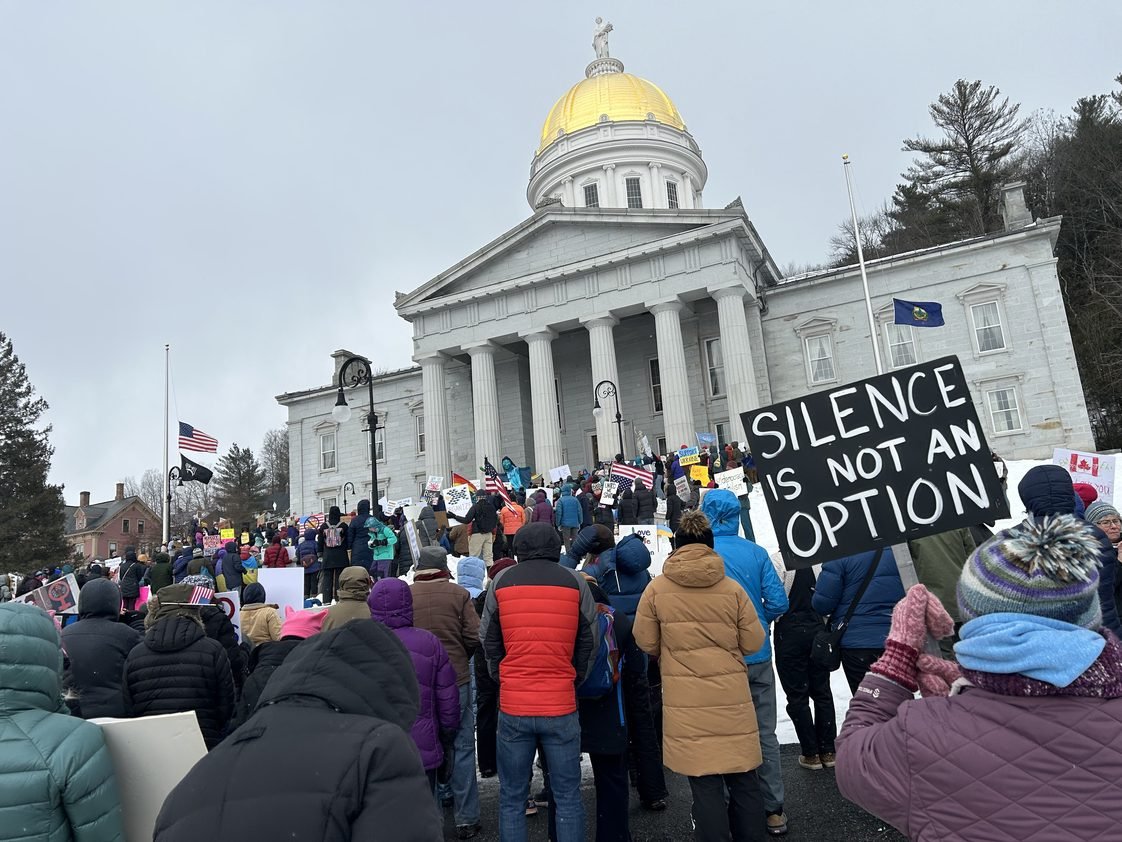Crossover Week Highlights
We’ve reached the traditional midpoint of the legislative session, the crunch time called “crossover.” Bills need to emerge from committee this week and make their way to a floor vote in either the House or Senate before crossing over to the other chamber. The statehouse is buzzing with activity right now, but it’s not yet clear what progress will be made for Vermont kids, youth and families. Read on for an update of this week’s activities.
Surviving in 2025
When we heard the news that our collective safety net was about to pause, Voices connected with colleagues and tried to plan for the potential impact, but we also felt a variety of emotions - panic, restlessness, unsteadiness, anger, fear and sadness. What does it take to survive in 2025?
Vermont’s Oral Health Landscape Report Reveals Severe Workforce Shortages, Access Barriers, and Systemic Inequities
Vermonters are facing significant obstacles in accessing affordable, quality dental care, according to an Oral Health Landscape report released by Voices for Vermont’s Children on behalf of the Vermont Oral Health Equity Project. The report reveals critical, far-reaching issues, including severe workforce shortages, disparities in access, and systemic inequities, that prevent communities—particularly low-income, rural, and marginalized populations—from receiving essential oral health services.
2024 KIDS COUNT Data Book: Spotlight on Education with a focus on Community Schools
–Vermont ranks 4th in child well-being again this year, according to the 2024 KIDS COUNT® Data Book, a 50-state report of recent data developed by the Annie E. Casey Foundation analyzing how kids are faring. The report highlights declining educational outcomes, with NAEP scores in reading and math dropping notably between 2019 and 2022. A promising solution lies in community schools, which provide comprehensive support to children and families, integrating services such as tutoring, mental health support, and nutritional aid.
Late-session updates: Progress for kids and youth
The last few weeks of the legislative session were a whirlwind of decision making. 216 bills have been passed by both chambers this biennium, 102 have become state law, and an additional 21 Municiple Acts have been enacted. 7 of those went into effect without the Governor’s signature and another 11 have been vetoed so far. There have been 375 resolutions adopted, including one honoring child and victim advocate Sally Borden for her achievements. That’s a lot of work! Policy choices impact nearly every aspect of our lives, and Voices has been working hard to move forth meaningful changes for children and youth in Vermont. We’ll share a full session recap once the dust settles, but the following updates reflect recent progress on areas in which we’ve been deeply engaged:
Why we're calling for a Veto of S.58
Yesterday, Vermont took a step in the wrong direction. With the passage of S.58, legislators all but ensured the rate of children being jailed in our state will increase. Allowing issues of resource scarcity or staffing to drive policy decisions about whether to try children as adults sets a dangerous precedent at a pivotal time. By choosing to further criminalize Vermont’s children and youth instead of addressing the underlying systemic issues at the heart of the matter, our state government will continue to perpetuate the very conditions of harm that lead to increased crime.
A shared endeavor: Mid-session update for kids and youth
The journey of childhood is a shared one, occurring across multiple contexts and over the course of many years. Each child’s lived experience plays out against a larger tapestry of values, systems, and structures that in turn translate into the kind of investment (or disinvestment) that propels or limits their ability to thrive. In this landscape, Voices builds our engagement around an awareness that real systems change cannot be driven by strength alone. We recognize that our advocacy is part of a chorus of individuals, families, and communities working toward an equitable and just future for children and youth. And although the scale of need in this moment may be significant, by choosing to approach our individual efforts as elements of an interconnected whole, the scale of change we can effect becomes amplified.
A strong start to the legislative session
This session we’re leading and working in coalition on a full landscape of issues impacting child wellbeing, and making the most of opportunities to advance meaningful progress for children and youth at the statehouse. By taking a multi-issue, systems level approach we are able to connect the dots on priority issues, respond in the moment to emergent opportunities, and identify possible unintended consequences for kids and families. We are headed into the session strong, tracking and informing progress on a broad range of bills across many different committees at the same time; from housing, to human services, to judiciary, to health.
Report: Vermont Ranks Fourth in Child Well-Being, but Inaccessible, Unaffordable Child Care Pushes Parents to the Breaking Point
Vermont ranks fourth in child well-being, according to the 2023 KIDS COUNT® Data Book, a 50-state report of recent household data developed by the Annie E. Casey Foundation analyzing how children and families are faring. Despite the fourth place ranking, the report also shows that our country’s lack of affordable and accessible child care short-changes children and causes parents in Vermont to change or even quit their jobs, while those who can find care are paying dearly for it. These child care challenges cost the American economy billions of dollars a year and stymie women professionally.
VT Leg Wrap-up: child well-being at the close of the session
When it comes to creating structures that center and support impacted communities, the path we choose to take is frequently as important as where we end up. This session created enormous opportunities for child and family well-being in Vermont. In this moment, there are many reasons to celebrate. At the same time, much remains uncertain–from the bills that have passed, to the impact of the legislative path taken to get here, and ultimately whether we will be able to come together to address the needs of the nearly 600 children in our state at risk of becoming unhoused and find a path forward. We also are taking this moment to attend to what has not happened- the larger gaps that remain for children and families, and the work that lies ahead for advocates and champions of child, youth, and family well-being in Vermont.
Reach Up(Date) 2024: Real Change For Children Experiencing Extreme Poverty
Child poverty is a policy choice. Income support programs like Reach Up can be powerful anti-poverty tools, but if they are not adequately funded, they can hold families in poverty, which we know is harmful to children. Reach Up is difficult to explain and even more difficult to navigate. As a result, the level of extreme deprivation perpetuated by its underfunding frequently remains obscured. This update is intended to support champions like you in seeing through these complex systems in order to better understand the daily reality of families in Vermont, and we hope you’ll take a few minutes to join us.
Cash Matters.
Reach Up cash assistance. Direct cash transfers for former foster youth. State Child Tax Credit. If you are sensing a theme throughout our recent lunchtime discussions, that’s because there is one. Cash matters. Every family needs the ability to make decisions about their own needs, and on a foundational level this means access to resources, which are frequently most effective for families when they arrive in the form of cash.
Time for a doughnut? Children's economic security and the KIDS COUNT Data Book rankings
The information in this year’s KIDS COUNT Data Book is important because even without the benefit of data from the last two years, our lens on child well-being in Vermont is shaped by what has happened since. The inequities that exist today did not emerge overnight, they have been with us all along.
Report shows mental health crisis among children in Vermont despite high ranking for child well-being
Vermont ranks 5th in child well-being, according to the 2022 KIDS COUNT® Data Book. However, children in Vermont and across America are in the midst of a mental health crisis, struggling with anxiety and depression at unprecedented levels.
Journeying through histories of Community Schools
While the implementation of community schools as a strategy to combat inequity may be fairly new in Vermont, their long history in the United States offers a starting point to critically examine what the movement might have in store for us here. Check out Part 2 of our Education Equity Series!
Ed Equity Series: Moving toward equity through Community Schools
We believe there exists a strong commitment to confronting and dismantling inequities, making connections between existing education policies, and building together public schools where every young person has what they need to learn and thrive. For us, the community schools framework is a comprehensive strategy within which to do so.
2022 Legislative Wrap Up: Important progress for kids and families
Alternately exciting, frustrating, overwhelming, and hopeful, this session left us with a lot to reflect on as an organization. As the session comes to a close, we are acknowledging the elements that were transformational, and those that were clearly not sustainable, for both legislators and advocates alike.
On Funding Vermont's Social Safety Net for Children and Families and Why It Matters
Our goal at Voices is to help transform systems that perpetuate inequity and direct resources where they can do the most good. Income support programs like Reach Up can be powerful anti-poverty tools, but if they are not adequately funded, they can serve to hold families in a state of hardship that we know is harmful to children.
Mid-Session Legislative Roundup
Now that the dust from crossover has settled, we’re taking stock of where things stand as we consider the work that lies ahead for the duration of the session and beyond. In addition to reviewing the progress and content of each bill, we’ve included opportunities to improve the equity of each. Join our efforts by reading these important updates about our work and ways to make change happen for kids and families.
The expanded Child Tax Credit: A game-changing investment for kids and families
Today, advance payments of the Child Tax Credit will start to arrive for most families with children across the country. This game-changing investment allocates money to those who need it the most, a step that fixes a persistent gap in the previous version of the Child Tax Credit and has the potential to cut child poverty in this country in half.




















